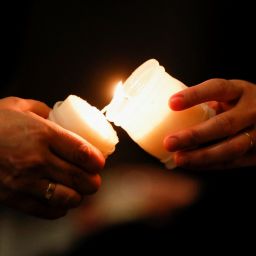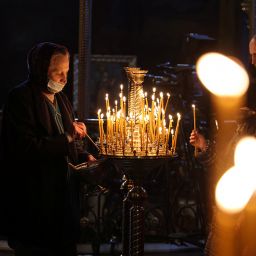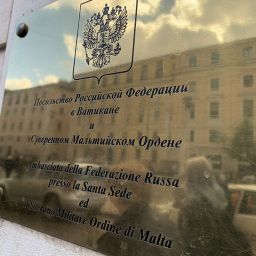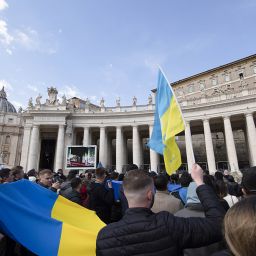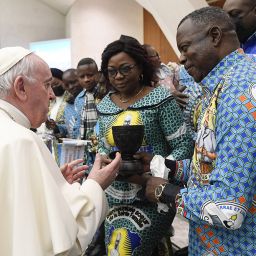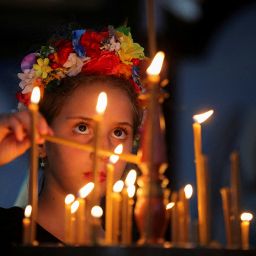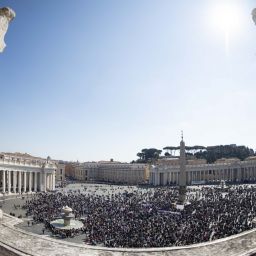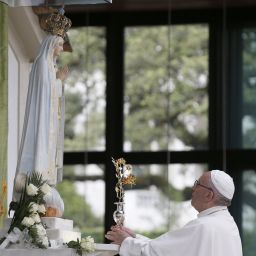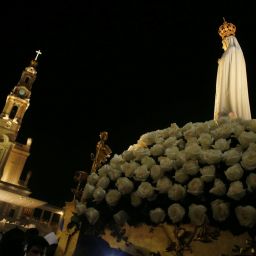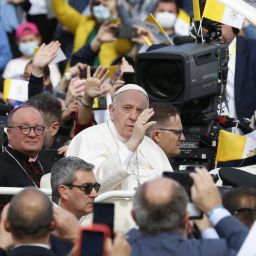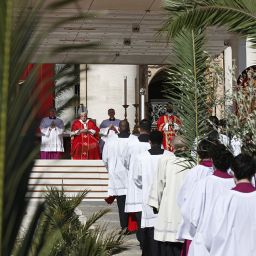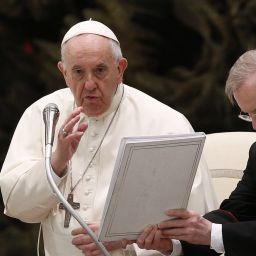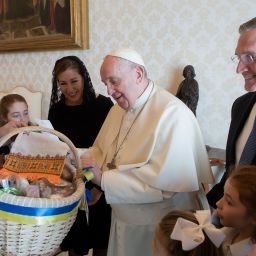By Justin McLellan
Catholic News Service
VATICAN CITY — Pope Francis expressed his concern that Christians fleeing the Holy Land and the whole of the Middle East will leave no Christian presence in the land “where it all began.”
The pope lamented the “dramatic situation” taking place in the Holy Land, where the apostles “received the mandate to go out to the world to announce the Gospel,” during a June 27 meeting with the Reunion of Aid Agencies for the Oriental Churches (ROACO), which is part of the Dicastery for the Oriental Churches.
“Today, all of the world’s faithful are called to make their closeness known and to encourage Christians there and in the entire Middle East to resist the temptation to leave their lands, torn by conflict,” he said, adding that the emptying of Christians from the Middle East is a “terrible situation.”
Pope Francis criticized the pain caused by war, which he said is “all the more jarring and absurd in the places where the Gospel of peace was proclaimed,” and called for a cease-fire so that dialogue may begin for the coexistence of different peoples.
Cardinal Claudio Gugerotti, dicastery prefect, and other dicastery officials were present for the meeting. Cardinal Mario Zenari, apostolic nuncio in Syria, and Archbishop Borys A. Gudziak of the Ukrainian Catholic Archeparchy of Philadelphia were among those scheduled to address participants in ROACA’s plenary assembly held in Rome June 24-27.
The pope stressed to the assembly participants the “tragic plight” in Ukraine, and he prayed that “paths of peace be opened for that dear population, that prisoners of war be freed and that children be repatriated.”
The Vatican, through Cardinal Matteo Zuppi of Bologna, has worked to open discussions with Russia on repatriating Ukrainian children taken into Russia. U.S. President Joe Biden thanked the pope for his efforts to return the children in a meeting between the two June 14 at the G7 summit in southern Italy.
Pope Francis also thanked the participants for addressing the humanitarian situation in the region of Karabakh, where increasing clashes between Azerbaijan and Armenia have caused casualties and displacements.
The pope said that Eastern Christians, “maybe now more than ever, are fleeing from conflicts or migrating in search of jobs or conditions for a better life,” prompting the need to consider how churches can tend to religious groups living in diasporas.
He noted that Eastern churches “have much to say to us about Christian life, about synodality and about liturgy,” adding that the particular churches that have their own law but are in communion with the pope “enrich the Catholic communion with the greatnesses of their history and their uniqueness.”
Citing St. Paul, the pope said the church must remember the most needy of Christians and work “to do what the civil authorities ought to do for the poorest and most vulnerable, but cannot do, do not know how to do, or fail to do..”
“The seeds you plant in soils polluted by hatred and war will sprout, I am sure,” he said. “And they will be a prophecy of a different world, one that does not believe that ‘might makes right,’ but in the non-violent power of peace.”
Cutline for featured image: Pope Francis greets participants in the general assembly of the Reunion of Aid Agencies for the Oriental Churches (ROACO), part of the Dicastery for the Oriental Churches, during a meeting at the Vatican June 27, 2020. (CNS photo/Vatican Media)

